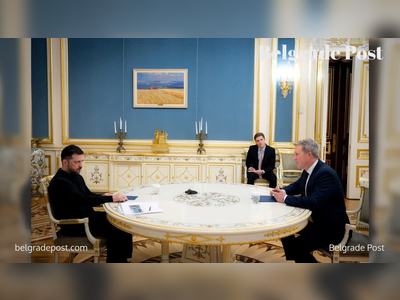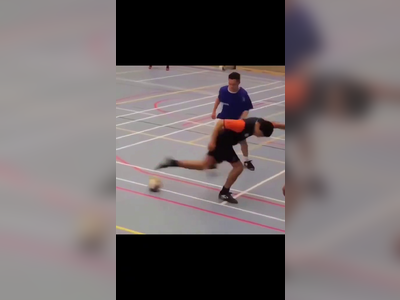Pre-Election Silence Disrupted by Activist Gathering in Zaječar
A group of activists gathers in Zaječar amidst the legally mandated pre-election silence, raising concerns over compliance with electoral regulations.
In Zaječar, Serbia, a gathering of civil activists has occurred in the city center during a legally mandated pre-election silence that commenced at midnight on June 5 and lasts until polls close on June 8 at 8 PM. The assembly has intensified this morning at the central town square, with activists and passersby present, holding banners.
Despite organizers claiming that their actions focus on educational and symbolic activities related to democracy, many observers consider such gatherings to be a form of political action that contravenes the established rules of pre-election silence.
Pre-election silence is a legally outlined period beginning 48 hours before Election Day, designed to allow voters a peaceful environment for decision-making.
During this timeframe, electoral propaganda is strictly prohibited to ensure impartiality before elections.
Specific rules have been established for different media forms.
Television, radio, portals, and print media are barred from publishing any promotional content, interviews, advertisements, or analyses that might influence voters regarding candidates or political options.
Additionally, the publication of pre-election opinion polls is also prohibited.
Social media regulations are similarly stringent.
Official accounts of political parties and candidates must cease posting promotional content.
While sharing of propaganda by individuals is not expressly forbidden, such actions can be scrutinized if deemed to affect the electoral process.
Paid campaigns on platforms such as Facebook, Instagram, and YouTube are also required to be halted, ensuring that no political advertisements remain active.
Oversight of compliance with these rules is undertaken by various bodies.
The Regulatory Authority for Electronic Media (REM) monitors the activities of television and radio stations, while the Electoral Commission can act on reports of violations.
Additionally, police and relevant judiciary authorities can take action based on complaints.
Violations of the pre-election silence can lead to significant repercussions, including fines imposed on media outlets, warnings, and bans on further content broadcasting, along with possible administrative charges.
The presence of demonstrators during this sensitive period raises questions about adherence to the electoral regulations intended to preserve the integrity of the election process.
Despite organizers claiming that their actions focus on educational and symbolic activities related to democracy, many observers consider such gatherings to be a form of political action that contravenes the established rules of pre-election silence.
Pre-election silence is a legally outlined period beginning 48 hours before Election Day, designed to allow voters a peaceful environment for decision-making.
During this timeframe, electoral propaganda is strictly prohibited to ensure impartiality before elections.
Specific rules have been established for different media forms.
Television, radio, portals, and print media are barred from publishing any promotional content, interviews, advertisements, or analyses that might influence voters regarding candidates or political options.
Additionally, the publication of pre-election opinion polls is also prohibited.
Social media regulations are similarly stringent.
Official accounts of political parties and candidates must cease posting promotional content.
While sharing of propaganda by individuals is not expressly forbidden, such actions can be scrutinized if deemed to affect the electoral process.
Paid campaigns on platforms such as Facebook, Instagram, and YouTube are also required to be halted, ensuring that no political advertisements remain active.
Oversight of compliance with these rules is undertaken by various bodies.
The Regulatory Authority for Electronic Media (REM) monitors the activities of television and radio stations, while the Electoral Commission can act on reports of violations.
Additionally, police and relevant judiciary authorities can take action based on complaints.
Violations of the pre-election silence can lead to significant repercussions, including fines imposed on media outlets, warnings, and bans on further content broadcasting, along with possible administrative charges.
The presence of demonstrators during this sensitive period raises questions about adherence to the electoral regulations intended to preserve the integrity of the election process.
AI Disclaimer: An advanced artificial intelligence (AI) system generated the content of this page on its own. This innovative technology conducts extensive research from a variety of reliable sources, performs rigorous fact-checking and verification, cleans up and balances biased or manipulated content, and presents a minimal factual summary that is just enough yet essential for you to function as an informed and educated citizen. Please keep in mind, however, that this system is an evolving technology, and as a result, the article may contain accidental inaccuracies or errors. We urge you to help us improve our site by reporting any inaccuracies you find using the "Contact Us" link at the bottom of this page. Your helpful feedback helps us improve our system and deliver more precise content. When you find an article of interest here, please look for the full and extensive coverage of this topic in traditional news sources, as they are written by professional journalists that we try to support, not replace. We appreciate your understanding and assistance.










